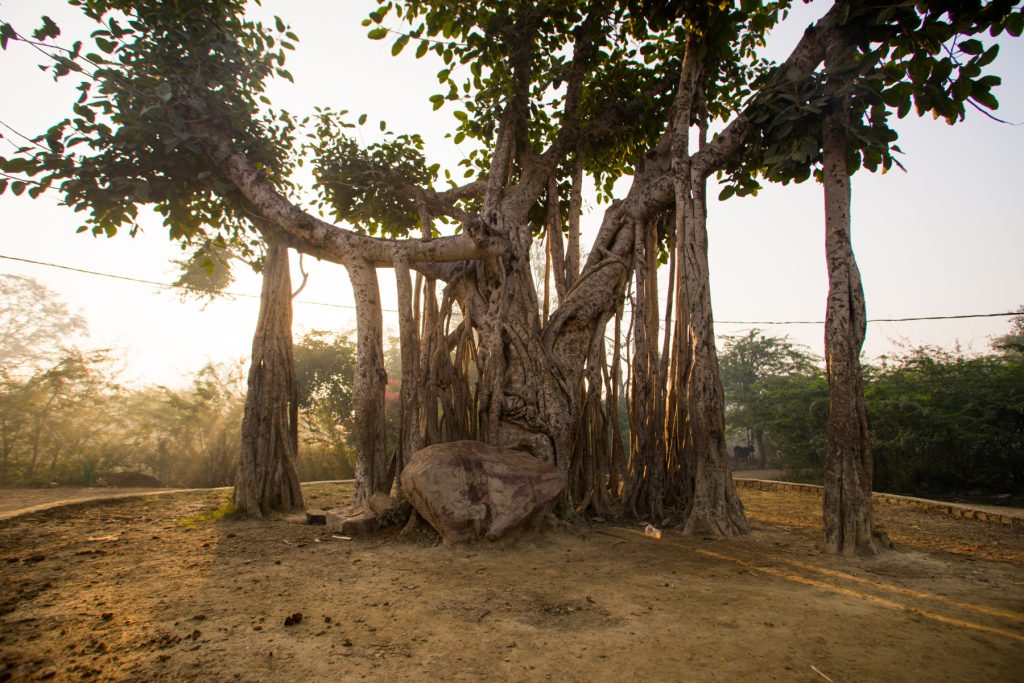Two years ago, a participant of the Sanga Mela Festival wrote to me deeply worried. He had failed! He was unable to follow through with his resolutions that he made after attending the retreat. Already by the midst of the following month, his resolutions had fallen to the wayside…
In my answer to him I explained that he is not the only one who falls short on his better knowledge. As someone who gives regular retreats, I have often seen how difficult it is for many to follow through with their new insights.
What is stopping us from fulfilling our resolutions? And, is there anything we can do about it?
First of all, we human beings are notoriously bad at resisting temptations – especially when busy, tired or stressed. Our tendency is to often value the pleasures of the present more than the potential successes of the future. Therefore, we often fall short on doing what is best for us.
You have probably heard about Professor Mischel’s famous marshmallow experiment. Children who could resist the temptation to immediately eat one marshmallow put in front of them would be rewarded fifteen minutes later with a second marshmallow. Those children who resisted the initial temptation and demonstrated self-control, would do much better professionally and privately later on in life. The experiment indicated that sense-control and delayed gratification for a particular goal can yield promising results.
Although the importance of self-control is emphasised in every genuine spiritual path, I fear that self-control by willpower only is not productive in the long run. What becomes especially harmful is the internal struggle we experience once we use our willpower to control our sense and choices. Inevitably, we will lose such a fight because we are engaged in a struggle against an enemy much stronger than us – our own mind.
A strong inner conflict emerges when our mind fights against what we know is best for us in the long run. Such an inner struggle produces more stress and can lead to disease. Willpower and its benefits wane through such an inner struggle and eventually die out completely – leaving us feeling hopeless in fulfilling our spiritual goals and resolutions. Quite a desperate situation to be in!
To be very clear: willpower and self-control have an important place. Yet, thinking that we must or have to do something that is better for us (e.g. read more, exercise more, wake up earlier, etc.) while solely depending on our willpower to achieve it can become a miserable struggle. A struggle often doomed to be lost. So, there must be something wrong with our approach to fulfilling our goals when such intense struggles occur.
The good news is that Krishna has given us a more effective tool than limited willpower: the higher taste. The Gita presents this most important tool in the following verse:
viṣayā vinivartante
nirāhārasya dehinaḥ
rasa-varjaṁ raso ’py asya
paraṁ dṛṣṭvā nivartate
Though the embodied soul may be restricted from sense enjoyment, the taste for such enjoyment remains. But when one experiences a higher taste, one easily stops such sense engagement and remains fixed in consciousness. (Bhagavad-Gita 2.59).
What can give us this much needed higher taste? From a spiritual perspective, sadhu-sanga (association with genuine spiritual practitioners) is the key to obtaining the higher taste necessary for achieving our spiritual aspirations. This is because the birthplace of bhakti is sadhu-sanga – not our willpower.
Just as it is important to be coached and guided by those more advanced than us in any field of our interest, similarly, being together with and serving spiritually uplifting people who inspire, support, and empower us to move on with strength on our spiritual path is the key to our spiritual success.
Sadhu-sanga will encourage us to naturally and spontaneously engage in spiritual activities like the pancanga bhakti (hearing sacred scripture, chanting the holy names of God, worshipping the Divine, associating with saintly devotees, and living in a sacred place). The strength that comes from such association is a type of renewed, unlimited, and ever-growing spiritual strength.
Therefore, let us seek out the necessary inspiration from those who have successfully walked the path we are on! This will shift our consciousness from thinking we have to or must do something using our willpower, to actually WANTING to do it because we have been inspired by the example of genuine spiritual practitioners.
For example, when we think, “I have to read more!”, let us seek the association of those who read sacred scriptures regularly and derive great taste from its wisdom. In this way, we will develop an inspiring attitude of, “Let me follow in their footsteps because I want to read more too!” This inspiration will be stronger than sheer willpower because sadhu-sanga works miracles.
The key is: Try to associate with saintly devotees and observe how a higher taste for spiritual life informs your own practice! A result of genuine sadhu-sanga is that you will want to engage in spiritual activities. Genuine sadhu-sanga will inspire us to want what is best for us – not because we think we have to or must want it, but because the miracles of sadhu-sanga will spark a sincere desire and hankering for spiritual truth within us too! And most of you might have already noticed that what you really want always comes to fruition in the end.
